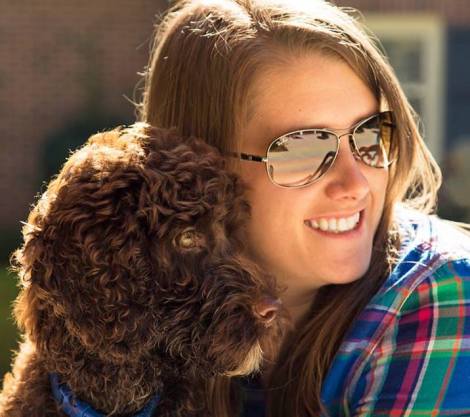Everyone poops; it is a fact of life. It is something we do behind closed doors, and rarely discuss in civilized conversation. We refer to it as “waste†to be flushed away and forgotten, but for some people your poop could be a precious medical commodity. Poop is a tool that can help in fighting bacteria that are antibiotic resistant. Individuals dealing with these resistant infections may be looking for someone just like you to aid in a fecal transplant. You heard me right, a poop transplant from one person to another to treat a medical condition.

First off, what exactly is a fecal transplant? Fecal transplants are a mixture of stool and saline, collected from a donor, and placed in a patient by colonoscopy. This is not a new medical treatment. Fecal transplants have been used as far back as 4th century China, where it was known as “yellow soup†(I hope you weren't eating while reading this). It has also been used for decades in veterinary medicine and in countries outside the United States such as the United Kingdom and Australia. However, it is still considered an investigational new drug by the FDA and not covered by most insurance companies in the United States due to lack of robust clinical trials and funding to get the approval.
But why would you need this treatment? An individual in need of a fecal transplant no longer has a balanced and healthy gut microbiome which can lead to infections. Just one gram of poop taken from a donor can contain trillions of microbes from that individual’s gut. Once transplanted, the microbes from the healthy donor can then help fight off disease-causing microbes, and establish a healthy diversity of gut microbes in the patient once again. Fecal transplants offer an alternative to antibiotics, using living organisms to treat disease (like a microbial fight club).

One of the most prominent disease-causing microbes treated by fecal transplant is Clostridium difficile, which can be spread from contaminated surfaces or health care personnel. Currently listed as “threat level urgent†by the CDC for antibiotic resistance, illness from C. difficile can cause symptoms from diarrhea to life-threatening colon inflammation. According to the CDC, C. difficile causes over 250,000 infections per year and 15,000 deaths, with a hefty price tag of $3.8 billion in medical costs over 5 years. Due to the rise in antibiotic resistance, an alternative treatment for C. difficile is needed. Shown to have a success rate over 90%, fecal transplants are a great option with minimal adverse effects or risk.

So, what exactly does using someone else's poop entail? First you have to identify a donor to provide the poop, patients may find their own donor. For your poop to be considered you must meet a list of criteria to be a donor: no antibiotics for the past 6 months, no chronic gastrointestinal disorders, and no tattoos/piercing in the past 6 months, among many other criteria. On the other hand, to be an ideal candidate for fecal transplant you usually have had 3 recurrences of C. difficile infection and all conventional therapies, like antibiotic treatment, have failed to treat it.
As antibiotic resistance is on the rise, alternative treatments are becoming more essential. While a poop transplant may sound gross, it offers a low-cost, low-risk, and highly effective treatment when all else has failed. Fecal transplants could also be used to help with other gastrointestinal diseases but further research must be done before this could occur. Sometimes you find a solution to your problem in the most unlikely places, or in the case of fecal transplants, in people.
About the Author
 A native Virginian (GO HOKIES!), Caitlin Reeves is a PhD candidate in the Microbiology department studying attachment of the human respiratory pathogen Mycoplasma pneumoniae to its human host. Outside of the lab she can be found planning events for UGA's Women in Science (WiSci) organization, snuggling with her labradoodle Sherlock, or playing video games despite being a 26 year old “adultâ€. A native Virginian (GO HOKIES!), Caitlin Reeves is a PhD candidate in the Microbiology department studying attachment of the human respiratory pathogen Mycoplasma pneumoniae to its human host. Outside of the lab she can be found planning events for UGA's Women in Science (WiSci) organization, snuggling with her labradoodle Sherlock, or playing video games despite being a 26 year old “adultâ€.
|
About the Author
-
athenssciencecafehttps://athensscienceobserver.com/author/athenssciencecafe/April 17, 2020
-
athenssciencecafehttps://athensscienceobserver.com/author/athenssciencecafe/April 12, 2020
-
athenssciencecafehttps://athensscienceobserver.com/author/athenssciencecafe/April 3, 2020
-
athenssciencecafehttps://athensscienceobserver.com/author/athenssciencecafe/March 30, 2020







